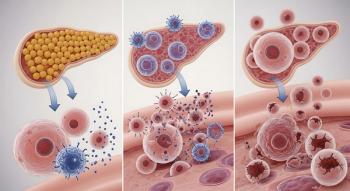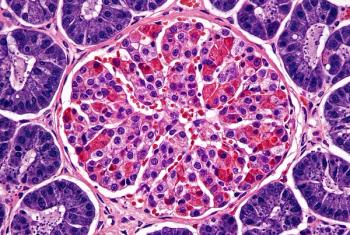
Coaching and Digital Tools Help Teens Better Manage Type 1 Diabetes
An intervention program that coaches patients in stress management and goal setting, along with a digital app, helped adolescents experience less distress and improved self-management behavior.
Integrating resilience skills-building with traditional diabetes care may improve outcomes and lower stress among adolescents with type 1 diabetes, according to a
The investigators, led by Joyce P. Yi-Frazier, Ph.D., noted that youth with type 1 diabetes have several management requirements that are needed to meet glycemic targets and reduce their risk of acute and long-term diabetes-related complications.
Yi-Frazier, of the Center for Clinical & Translational Research, Seattle Children’s Research Institute, Seattle, Washington, and the Department of Psychosocial Oncology & Palliative Care, Dana-Farber Cancer Institute, Boston, Massachusetts, and colleagues wrote of the negative associations of these complications.
Yi-Frazier and her colleagues wanted to test whether Promoting Resilience in Stress Management (PRISM) interventions could have an impact on hemoglobin A1C, diabetes distress, self-management, resilience and quality of life. PRISM is a tool designed to help adolescents manage serious illness with the goal of building skills to build resilience. It uses coaching to help young adults with stress management, goal setting, and cognitive reframing.
In this phase 3 trial, researchers followed 172 patients 13 to 18 years of age with type 1 diabetes for 12 months. The study was conducted between Jan. 1, 2020, and Nov. 30, 2022. Patients were randomly selected for the PRISM protocol or usual care. In this study, patient care for both groups was provided by two centers and both followed the recommendations of the American Diabetes Association for a multiple-disciplinary team to treat younger patients with diabetes.
But the group of patients assigned to the PRISM arm also received coaching every two weeks and had the option to access to a digital app. Between sessions, patients could use worksheets or the app for practice and tracking. Coaches provided brief telephone check-in calls every two weeks until three months after enrollment and monthly from months three through six. Although there was no additional contact after six months, the PRISM app remained available.
Researchers found that at 12 months, there was no statically significant difference between the two groups of patients on hemoglobin A1C. But participants in the PRISM group experienced less distress and improvement in self-management behavior.
“These findings suggest that the strengths-based PRISM intervention represents a feasible and moderately efficacious approach to promote psychosocial and behavioral health benefits among adolescents with T1D and elevated diabetes distress,” researchers wrote.
One limitation of the study was that English-speaking, White and non-Hispanic patients were overrepresented. Researchers noted that this study was conducted during the pandemic and many potential participants could not be reached.
Researchers suggested that potential follow up research could assess the optimal timing of coaching and longer follow-up to see if the results are maintained.
Newsletter
Get the latest industry news, event updates, and more from Managed healthcare Executive.

























